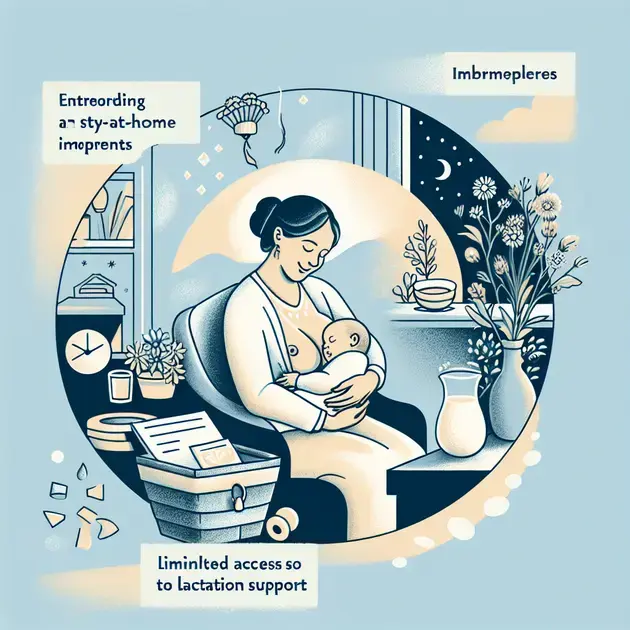
Article: The Impact of Stay-at-Home Orders on Breastfeeding during the Pandemic
A new study has shed light on the effects of stay-at-home orders on breastfeeding practices during the COVID-19 pandemic. The research found that 34 percent of mothers reported positive outcomes, such as easier breastfeeding at home, stronger mother-child bonding, and extended breastfeeding duration. However, it also unveiled significant challenges, including limited access to lactation support and heightened maternal stress.
The unprecedented circumstances brought about by the pandemic forced families to adapt their routines and significantly impacted breastfeeding practices. For a substantial proportion of mothers, the stay-at-home orders proved to be beneficial. With more time spent at home, breastfeeding became easier and more convenient, as there was increased privacy and freedom to breastfeed on demand. Mothers reported feeling more relaxed and able to establish a deeper connection with their infants.
Furthermore, the study found that the prolonged periods of uninterrupted proximity between mothers and their babies facilitated an increased duration of breastfeeding. Without the pressures of returning to work or other external commitments, women were able to continue breastfeeding for an extended period, thus reaping the various health benefits associated with it.
Despite these positive outcomes, the study highlighted several challenges faced by breastfeeding mothers. The limited access to lactation support services, such as consultations with lactation specialists or access to breastfeeding support groups, posed a significant barrier. The closure of healthcare facilities, restricted visitor policies, and a shift to remote healthcare consultations limited the guidance and assistance available to breastfeeding mothers.
Moreover, the pandemic introduced heightened levels of stress for mothers, which, in turn, impacted their breastfeeding experience. The uncertainties surrounding the virus, financial instability, and the emotional toll of isolation increased maternal stress levels, potentially affecting milk production, let-down reflex, and overall breastfeeding satisfaction.
In conclusion, the study underscores the dual impact of stay-at-home orders on breastfeeding during the pandemic. On one hand, it facilitated easier breastfeeding at home, strengthened mother-child bonding, and extended breastfeeding duration for a significant number of women. On the other hand, limited access to lactation support and heightened maternal stress posed significant challenges. As we navigate the current crisis and beyond, it is crucial to prioritize lactation support services, both in-person and virtual, to ensure that breastfeeding mothers receive the necessary assistance and guidance that will positively impact their breastfeeding journey.